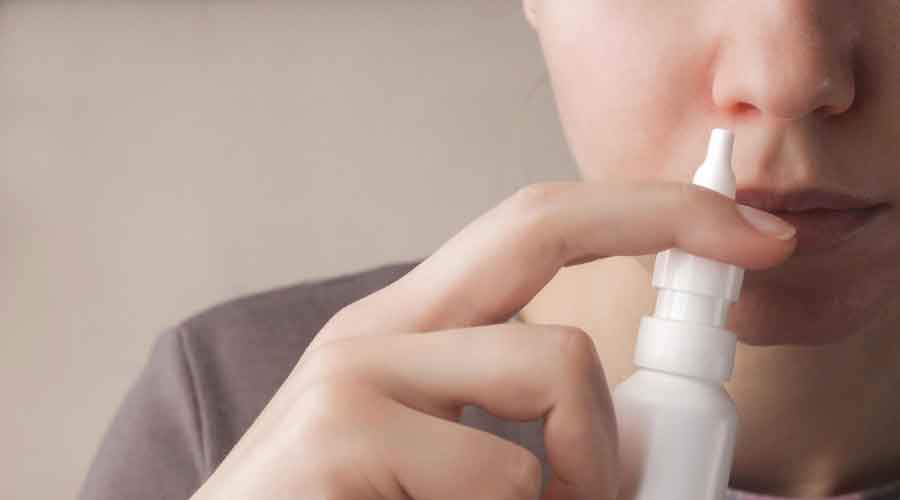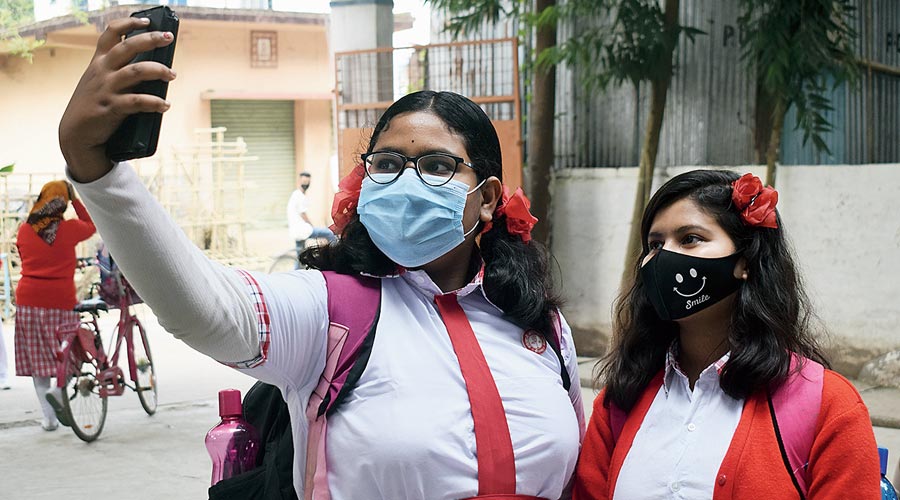On the outskirts of this centuries-old city, a world away from its congested roads and cacophony, the gleaming modern laboratories of Bharat Biotech are churning out a Covid vaccine that would be sprayed into the nose rather than injected into the blood.
Currently available vaccines produce powerful, long-lasting immunity against severe illness, as several studies have recently shown. But their protection against infection from the coronavirus is transient, and can falter as new variants of the virus emerge — a failing that has prompted talk of regular booster shots.
Nasal vaccines may be the best way to prevent infections long term, because they provide protection exactly where it is needed to fend off the virus: the mucosal linings of the airways, where the coronavirus first lands.
Bharat Biotech is among the world’s leading vaccine manufacturers. Its best known product, Covaxin, is authorised to prevent Covid in India and many other countries. But its experimental nasal vaccine may prove to be the real game changer.
Immunising entire populations with a nasal or oral vaccine would be faster in the middle of a surge than injections, which require skill and time to administer. A nasal vaccine is likely to be more palatable to many (including children) than painful shots, and would circumvent shortages of needles, syringes and other materials.
Intranasal vaccines “can be administered easily in mass immunisation campaigns and reduce transmission”, said Krishna Ella, chairman and managing director of Bharat Biotech.
There are at least a dozen other nasal vaccines in development worldwide, some of them now in Phase 3 trials. But Bharat Biotech’s may be the first to become available. In January, the company won approval to begin a Phase 3 trial of the nasal spray in India as a booster for people who have already received two shots of a Covid vaccine.
The omicron variant made it all too clear that even three doses of a vaccine, while they provide powerful protection against severe illness, may not prevent infection. That’s because injected vaccines produce antibodies in the blood, comparatively few of which make it to the nose, the entryway for the virus.
So-called mucosal vaccines ideally would coat the mucosal surfaces of the nose, mouth and throat with long-lasting antibodies, and would be much better at preventing infection and spread of the virus. It is the difference between planting sentries at the gates to bar intruders and trying to oust them after they had already stormed the castle.
Nasal vaccines are “the only way to really circumvent person-to-person transmission”, said Jennifer Gommerman, an immunologist at the University of Toronto. “We can’t live forever sheltering vulnerable people and boosting them so that their antibody levels stay artificially high.”
Nasal vaccines have been shown to protect mice, ferrets, hamsters and monkeys against the coronavirus. A new study last week offered powerful evidence in support of their use as a booster.
An intranasal booster induced immune memory cells and antibodies in the nose and throat, and strengthened protection from the initial vaccination, the researchers reported. The study has not yet been published in a scientific journal.
“Our approach is to not use a nasal vaccine as a primary vaccination, but to boost with nasal vaccine, because then you can leverage the existing immunity that’s already created,” said Akiko Iwasaki, an immunologist at Yale University who led the study.
When she and her colleagues used a mix of proteins from the new coronavirus as well as the related SARS virus, their experimental nasal vaccine seemed capable of fending off a broad range of coronavirus variants.
“There’s some flexibility, and there might be more resilience against the virus,” said Gommerman, who was not involved in the work. “And because we don’t know what the virus will do next, that’s awfully appealing.”
The current Covid vaccines are injected into muscle, and excel at training immune cells to tackle the virus after it enters the body. They produce antibodies called IgG that circulate in the blood and can be marshalled when needed.
But few of these antibodies travel to the nose and throat, and even those that do wane quickly.
By contrast, nasal vaccines produce a special set of antibodies, called IgA, that thrive on mucosal surfaces like the nose and throat. And these antibodies may wane more slowly.
A vaccine delivered with a nebuliser could coat the entire airway, including the lungs, with IgG antibodies. “It’s not just the tip of the nose that’s protected,” Iwasaki said.
Mounting evidence supports IgA antibodies as the key to preventing infection. In one study, Gommerman and her colleagues found that only about 30 per cent of people had detectable IgA antibodies after receiving a second dose of vaccine.
Those who had lower levels of IgA within a month of the second dose were more likely to develop a breakthrough infection. IgG levels seemed to have no impact on the outcome.
“Location really matters, and mucosal immunity is really important for protection from infection,” said Michal Tal, an immunologist at Stanford University who was involved in the work.
People who gain immunity because of an infection with the virus — rather than from an injected vaccine — tend to have strong mucosal immunity, at least for a while. That may help explain why they seemed to fare better against the delta variant than those who had been vaccinated, Tal said.
But she warned that trying to obtain mucosal immunity by getting infected was dangerous. “The way to get people that kind of mucosal protection really, really, really should be with a nasal vaccine,” she said.
Injected vaccines are the right approach for generating the systemic immunity needed to prevent death and disease, the urgent goal at the start of the pandemic, Tal said.
“That was a good first step, but we needed to have intranasal vaccines ready for boosting right after that,” she added.
But developing nasal vaccines is complicated. Measuring mucosal antibodies is much more difficult than quantifying antibodies in the blood. The amounts are often low and can fluctuate wildly. For example, the aroma of a delicious meal may flood the mouth with saliva, diluting mucosal antibody levels.
“It’s just like a stepchild for vaccine development, because it’s hard,” Florian Krammer, an immunologist at the Icahn School of Medicine at Mount Sinai in New York, said of mucosal vaccines.
New York Times News Service












